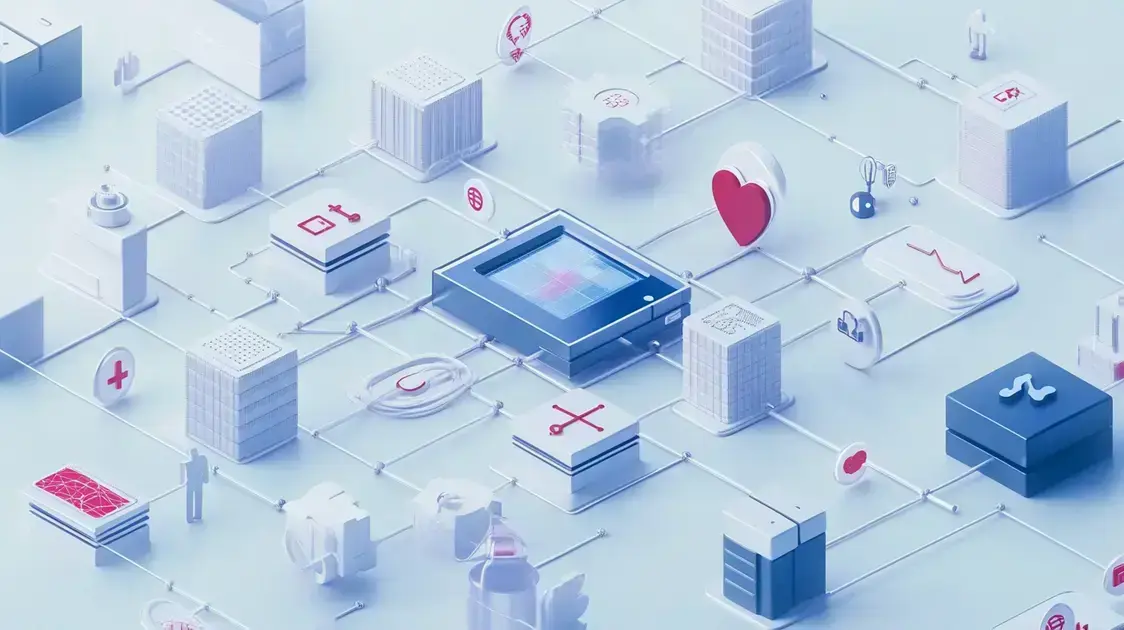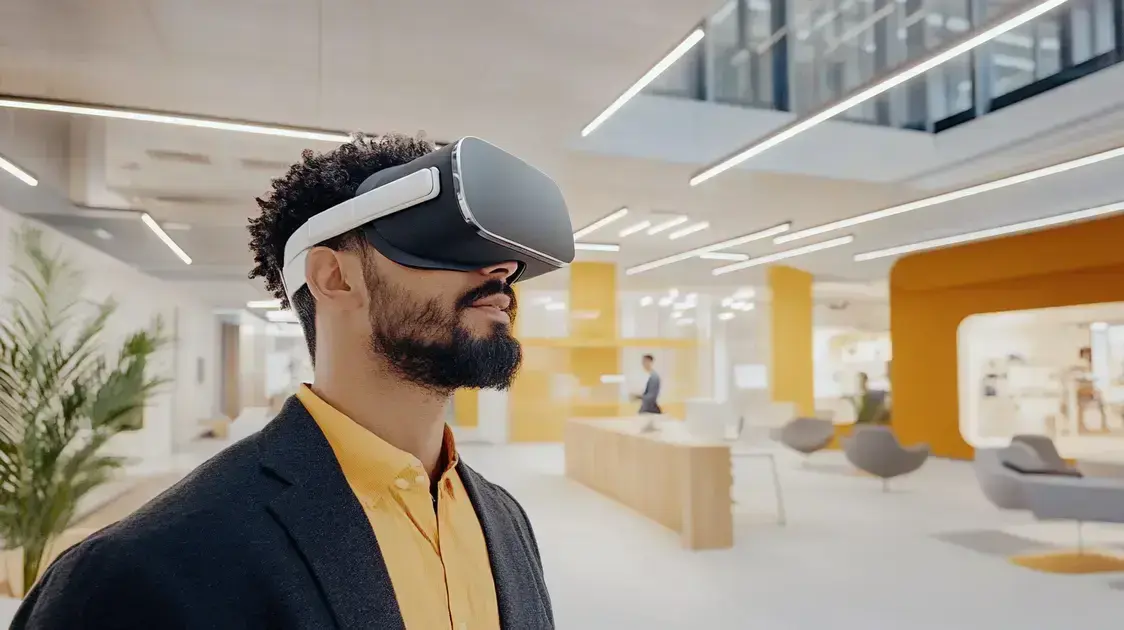The impact of emerging technologies is transforming industries, improving efficiency and automation. From AI to quantum computing, these innovations are reshaping how businesses operate and how individuals interact with digital tools.
In healthcare, AI-driven diagnostics enhance patient care, while in education, virtual learning platforms improve accessibility. The impact of emerging technologies also optimizes finance, manufacturing, and retail, streamlining operations and enhancing customer experiences.
Adapting to these advancements is key to staying competitive. Understanding the impact of emerging technologies allows businesses and individuals to innovate and thrive in a rapidly evolving digital world. Keep reading to explore the latest trends shaping the future.
Understanding Emerging Technologies
Impact of Emerging Technologies like AI, blockchain, and IoT is transforming industries by enhancing efficiency, improving decision-making, and creating new opportunities. Understanding these innovations is crucial as they reshape the way businesses operate.
However, the impact of emerging technologies also brings challenges, including ethical concerns, cybersecurity risks, and job displacement. Companies and policymakers must adopt balanced solutions to maximize benefits while addressing these risks effectively.
Staying informed about the impact of emerging technologies helps individuals and businesses adapt, innovate, and remain competitive. Continuous learning and strategic planning are essential for long-term success in this rapidly evolving landscape.
The Role of AI in Transforming Industries
The role of AI in transforming industries is undeniable. AI technologies automate complex processes, offering better efficiency and precision than ever before. This transformation is evident across various sectors, leading to significant improvements in productivity and innovation.
Applications of AI in Different Industries
Many industries have embraced AI to enhance their operations. Here are a few examples:
- Healthcare: AI systems assist in diagnosing diseases by analysing medical data and images more accurately than humans. They also help in personalising treatment plans based on individual patient data.
- Finance: AI algorithms detect fraudulent transactions in real-time and streamline processes like loan approvals and investment predictions, making financial services faster and safer.
- Manufacturing: AI optimises supply chains by predicting demand, reducing waste, and improving production planning. Smart factories employ AI-driven robotics for enhanced assembly line efficiency.
- Retail: AI personalises customer experiences by analysing purchasing behaviour. Chatbots are used to handle customer inquiries 24/7, freeing up human resources.
- Transportation: AI enhances route optimisation in logistics, reducing delivery times and costs. Autonomous vehicles also rely heavily on AI for navigation and safety.
Benefits of AI Adoption
Companies adopting AI enjoy numerous benefits:
- Cost Efficiency: Automation reduces operational costs by lowering the need for repetitive manual labour.
- Accuracy: AI systems minimise human error, ensuring higher accuracy in tasks ranging from data entry to analysis.
- Enhanced Decision-Making: AI provides valuable insights from massive datasets, enabling faster and more informed decisions.
- Scalability: AI solutions can be scaled up or down easily, allowing businesses to adapt to changing market demands.
Challenges in Implementing AI
Despite the advantages, AI adoption comes with challenges:
- Data Privacy: Ensuring privacy and security of sensitive information is a major concern that companies must address.
- Integration: Incorporating AI with existing systems can be complex and require significant time and resources.
- Skill Gap: There is often a shortage of skilled professionals who can develop and maintain AI technologies.
Nonetheless, the promise of AI continues to drive innovation in various industries, paving the way for a smarter, more efficient future.
Blockchain: Revolutionizing Data Security

The impact of emerging technologies is transforming industries, with blockchain leading the way in data security. By providing decentralized and tamper-proof records, blockchain enhances transparency and protects sensitive information from cyber threats.
As businesses embrace digital transformation, the impact of emerging technologies like blockchain is becoming more evident. Industries such as finance, healthcare, and supply chain management are integrating blockchain to improve security, streamline operations, and reduce fraud.
However, challenges like scalability and regulatory concerns must be addressed to fully harness the impact of emerging technologies. As blockchain evolves, its role in securing data and fostering trust will continue to grow, making it a key component of the digital future.
Internet of Things (IoT) and Smart Living
The Internet of Things (IoT) is creating a new way of living, known as smart living. IoT refers to the network of devices that communicate with each other over the internet. From smart appliances to wearable technology, these devices collect and exchange data, making our lives more convenient and efficient.
How IoT Works
IoT devices are embedded with sensors, software, and other technologies that enable them to connect and share information. This means that everyday objects, like your refrigerator, thermostat, and even your car, can send you updates and alerts in real time.
Benefits of Smart Living
There are many advantages to adopting IoT technology for smart living:
- Convenience: Smart home devices can be controlled remotely via a smartphone app. This allows you to manage everything from lighting to security systems while away from home.
- Energy Efficiency: IoT devices can monitor and adjust energy use based on your habits. Smart thermostats, for example, learn your schedule and adjust heating and cooling accordingly, saving on energy bills.
- Enhanced Security: Smart security systems provide real-time alerts about potential threats, allowing for immediate action. You can monitor your home through cameras and receive notifications if something unusual occurs.
- Health Monitoring: Wearable devices track health metrics such as heart rate, sleep patterns, and activity levels, helping you stay informed about your wellbeing.
Challenges of IoT in Smart Living
While IoT offers many benefits, there are challenges that users may face:
- Privacy Concerns: With so many connected devices, concerns about data security and privacy are paramount. It’s important to keep devices updated and secured with strong passwords.
- Interconnectivity Issues: Not all IoT devices communicate seamlessly with one another, which can lead to compatibility issues. Ensuring that devices work together smoothly can be challenging.
- Dependence on Internet Connectivity: IoT devices require a stable internet connection to function properly. If your connection is disrupted, so too is your smart living experience.
The Future of IoT and Smart Living
The potential for IoT technology continues to grow, promising to transform how we interact with our homes and surroundings. As more devices become connected, the possibilities for smart living are endless.
5G Technology and its Impacts on Connectivity
5G technology represents the latest evolution of mobile connectivity, offering remarkable advancements over its predecessors. With faster speeds, higher capacity, and lower latency, 5G is set to enhance various aspects of connectivity across the globe.
Key Features of 5G Technology
Here are some defining features of 5G:
- Increased Speed: 5G promises speeds that can reach up to 10 Gbps, making downloads and uploads significantly faster than ever before.
- Low Latency: 5G technology reduces response times to as low as 1 millisecond. This is crucial for applications where timing is critical, like gaming and autonomous vehicles.
- Higher Capacity: With the ability to connect millions of devices simultaneously, 5G supports the growing number of IoT devices in urban areas.
- Enhanced Reliability: 5G networks provide a more stable connection, which is particularly important for industries relying on real-time data.
Impacts of 5G on Connectivity
The implementation of 5G technology will have profound impacts:
- Smart Cities: 5G will enable seamless communication between devices, making it easier to manage infrastructure and services efficiently.
- Healthcare Innovations: Remote surgeries and telemedicine will benefit from 5G’s low latency and high reliability, improving patient outcomes.
- Enhanced Mobile Experiences: Users can expect high-definition streaming and immersive experiences in virtual and augmented reality applications.
- Automated Systems: 5G will support the automation of industries such as manufacturing and logistics, improving productivity and efficiency.
- Improved Connectivity in Remote Areas: 5G has the potential to bridge the digital divide by providing faster internet access in rural and underserved regions.
Challenges and Considerations
Although the benefits are significant, there are challenges to consider:
- Infrastructure Costs: The rollout of 5G requires substantial investments in new infrastructure, which can be a barrier for some regions.
- Health Concerns: Public concern about the potential health effects of increased electromagnetic exposure from more antennas may hinder deployment.
- Security Issues: The increased connectivity can lead to vulnerabilities, making security measures even more critical.
In summary, as 5G technology continues to develop and expand, it holds the promise of transforming connectivity in ways that can significantly impact daily life and industry operations.
Virtual Reality (VR) and Augmented Reality (AR) in Business

Virtual Reality (VR) and Augmented Reality (AR) are changing how businesses operate, creating new opportunities for engagement and efficiency. These technologies allow companies to create immersive experiences that enhance both customer interactions and internal processes.
Applications of VR in Business
Virtual Reality provides an immersive environment that can be beneficial in various industries:
- Training and Development: VR simulations are used for employee training in fields like healthcare, aviation, and manufacturing. This allows workers to practice skills in a safe environment before real-world application.
- Product Design: Designers can create and visualize products in a virtual space, allowing for rapid prototyping and testing before physical production.
- Virtual Meetings: Businesses can hold meetings in VR, providing a sense of presence that regular video conferencing cannot match, which enhances communication and collaboration.
Applications of AR in Business
Augmented Reality overlays digital information in the real world, making it useful for various applications:
- Customer Engagement: Retailers use AR to enhance shopping experiences, allowing customers to see how products would look in their homes before purchase.
- Maintenance and Repair: AR provides technicians with real-time information and guidance during repairs, increasing efficiency and reducing errors.
- Marketing: Interactive AR advertisements engage customers in unique ways, making them more memorable.
Benefits of Implementing VR and AR
The integration of VR and AR into business operations offers several benefits:
- Enhanced Customer Experiences: Both technologies create engaging experiences that can foster customer loyalty and satisfaction.
- Cost Efficiency: By simulating training and prototyping, VR and AR can significantly reduce costs associated with physical resources.
- Increased Productivity: Employees can work more efficiently with immersive training and real-time assistance in their tasks.
Challenges in Adoption
While the rewards are substantial, challenges exist:
- High Initial Costs: The setup cost for VR and AR technologies can be significant, which may deter some businesses.
- Technical Expertise: Implementing these technologies often requires specialised knowledge that businesses may lack.
- User Acceptance: Employees and customers may need time to adapt to virtual environments, which can delay adoption.
As advancements in VR and AR continue, their applications in the business world are set to grow, creating more interactive and efficient working environments.
Ethical Considerations in Emerging Tech
The impact of emerging technologies raises important ethical considerations as AI, blockchain, and IoT reshape industries. Addressing these concerns ensures responsible innovation that benefits society while minimizing risks.
Data privacy is a critical issue in the impact of emerging technologies. As companies collect vast amounts of user data, they must implement strict security measures to protect against breaches and misuse. Transparency and informed consent are essential in maintaining trust.
Bias and fairness must also be addressed within AI-driven solutions. The impact of emerging technologies can be compromised when algorithms inherit biases from training data, leading to discrimination. Regular audits and diverse datasets can help mitigate this issue.
Job displacement is another challenge as automation transforms industries. The impact of emerging technologies should include initiatives that support workforce retraining, ensuring that technological progress does not lead to widespread unemployment.
Technology misuse is a growing concern, from cybercrime to misinformation. The impact of emerging technologies must be managed through regulations and ethical guidelines that prevent exploitation while fostering innovation.
Environmental sustainability should be a priority as new technologies emerge. The impact of emerging technologies includes increased energy consumption, requiring businesses to integrate eco-friendly solutions into their development processes.
Regulatory compliance is essential to balance progress with ethical responsibility. As laws struggle to keep pace with rapid advancements, businesses must proactively align with emerging legal frameworks to address ethical challenges in the impact of emerging technologies.
Future Trends in Technology Development
Impact of emerging technologies will redefine industries, influencing how businesses operate and how individuals interact with digital advancements. As innovations accelerate, the integration of AI, IoT, and cybersecurity solutions will play a pivotal role in shaping the future.
1. Artificial Intelligence Advancements – The impact of emerging technologies like AI will enhance automation, improve data-driven decision-making, and offer more personalised consumer experiences, transforming multiple industries.
2. Growth of IoT Devices – More connected devices will facilitate seamless data exchange, improving efficiency in sectors like healthcare, smart homes, and transportation. The impact of emerging technologies will be evident in daily life.
3. Increased Focus on Cybersecurity – With growing digital threats, businesses will prioritise advanced security measures, including AI-driven threat detection and blockchain technology, ensuring secure transactions.
4. Cloud Computing Evolution – Companies will expand cloud strategies for better scalability, flexibility, and cost savings, ensuring operations remain efficient in an increasingly digital landscape.
5. Advancements in 5G Technology – Faster connectivity will revolutionise industries such as autonomous vehicles, smart cities, and AR applications, boosting real-time interactions and data processing.
6. Sustainable Technology Initiatives – Green technology solutions, energy-efficient devices, and renewable energy innovations will become essential in reducing environmental impact and promoting sustainability.
7. Virtual and Augmented Reality Integration – Businesses will integrate VR and AR into training, marketing, and consumer experiences, enhancing engagement through immersive digital environments.
8. Quantum Computing Potential – The impact of emerging technologies like quantum computing will unlock new possibilities in cryptography, problem-solving, and scientific research.
As these advancements continue, the impact of emerging technologies will drive transformation across all industries, making adaptability and innovation essential for future success.
FAQ – Frequently Asked Questions about Emerging Technologies
What is the impact of emerging technologies on businesses?
Emerging technologies enhance efficiency, improve customer experiences, and create new business opportunities across various sectors.
How can AI transform industries?
AI automates processes, enhances decision-making, and allows for personalised customer interactions, ultimately driving growth and innovation.
What role does blockchain play in data security?
Blockchain provides a secure and tamper-proof method to record transactions, ensuring the integrity and safety of data.
What benefits does IoT offer for smart living?
IoT improves convenience and efficiency by connecting devices, allowing for remote management and better data collection.
How will 5G technology change connectivity?
5G technology will offer faster data speeds, lower latency, and greater capacity, enabling more connected devices and enhanced user experiences.
What ethical considerations should businesses keep in mind?
Businesses must address data privacy, biases in AI, job displacement due to automation, and environmental impacts when implementing new technologies.
Check out our article on Data Analysis to learn how to leverage data to make informed decisions and drive business growth.
